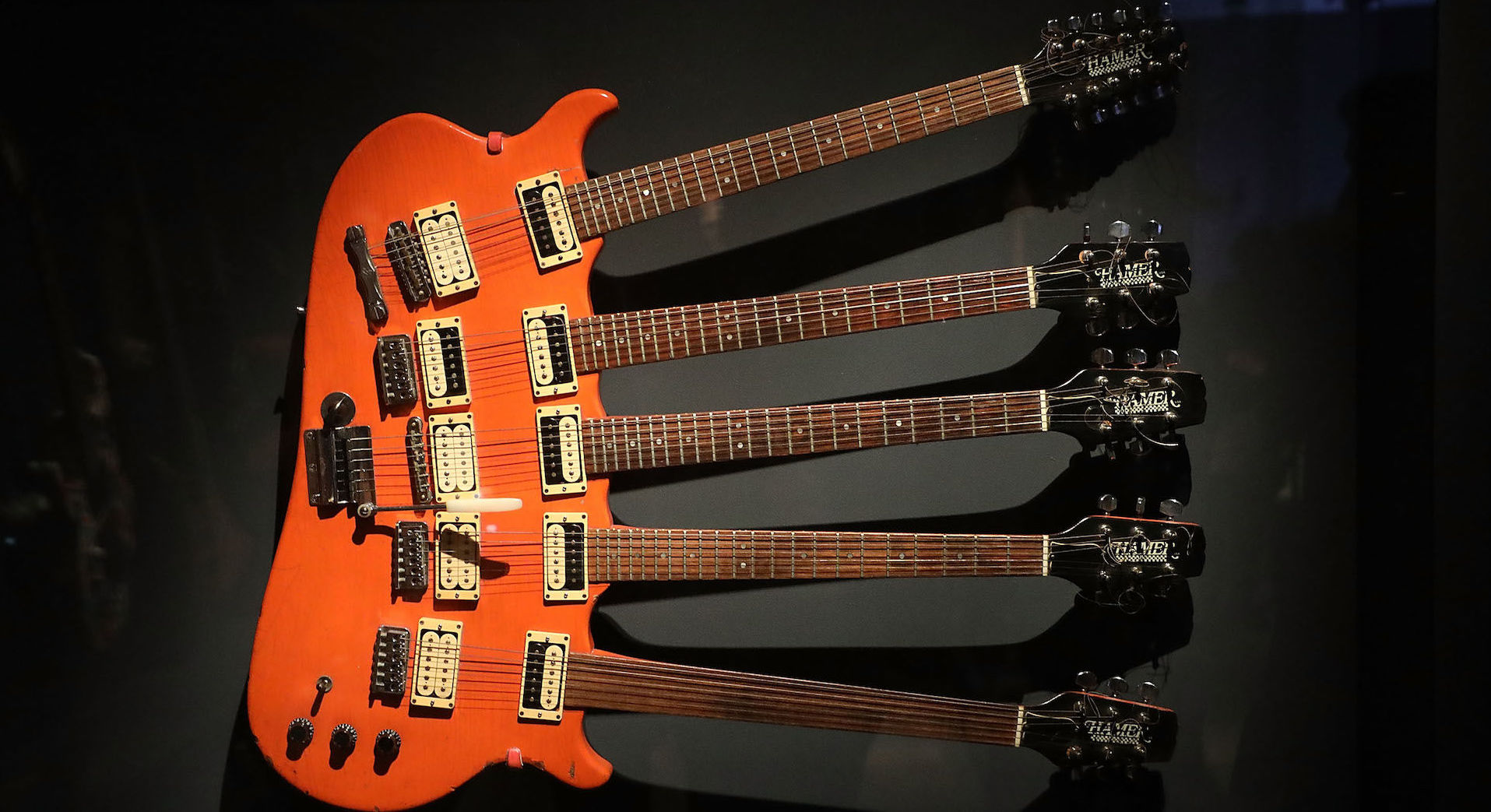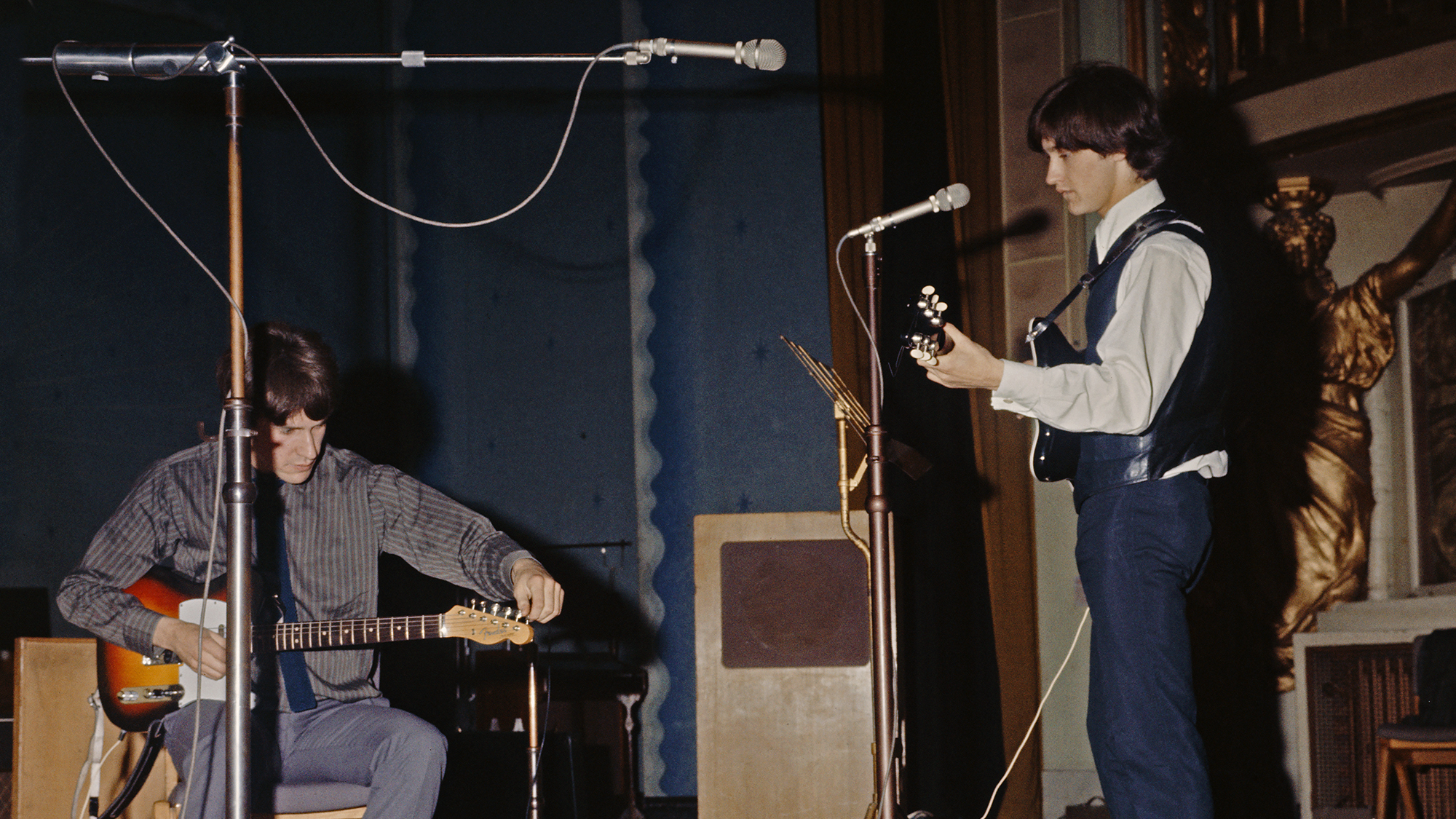Rick Nielsen Reveals the Story Behind His 1981 Hamer Five-Neck
How a stage act paved the way for the one of the wildest guitars of all time.

I have a total of three Hamer five necks, but this is the original orange one that was built for me in 1981. This guitar has been displayed in several museums and now lives on the wall at Piece, my restaurant in Chicago.
How did I come up with such a backbreaking idea for an instrument? Well, back at shows in the late Seventies and early Eighties, I used to stack up as many as five guitars for my guitar solo.
I’d play one for a little bit, then throw it away and play the one hanging underneath it. Usually, the last one was the prototype Hamer.
The other guitars in the stack were often a single-cutaway Les Paul Junior that I had put a humbucker into, my “flag” guitar – which had an interchangeable top that I would switch for whatever country we were in – and a left-handed Stratocaster with a right-handed maple neck.
Eventually, this part of the show gave birth to the idea of building a multi-necked guitar. The original concept was to have a six-neck that spun like a roulette wheel, so that I could play one neck and then rotate to the next, but then I decided to go with something more conservative – five necks in a row!

Structurally, building this monster was a bit of a chore, because I wanted a 12-string and a fretless, and one that sounded like a Stratocaster and one that sounded like a Junior. But Hamer, never to be daunted, managed to put all the ideas together and made it work. And, now, because he was there when they built it, I’ll turn the floor over to Hamer’s Frank Untermeyer:
“Rick’s out of his mind, but in a wonderful way. By 1981, we had already done some pretty wacky stuff for him and Cheap Trick, like the checkerboard Standard, an electric mandocello, and a 12-string bass, so we were used to the fact that they set all standards for going to the limit.
All the latest guitar news, interviews, lessons, reviews, deals and more, direct to your inbox!
"For this guitar, we cut apart five double-cutaway Hamer Special bodies and laminated them together, and then sanded in between the necks to get that sort of swoopy look. As I recall, routing the wires through this thing was also a huge pain in the ass.”
Thanks, Frank!
